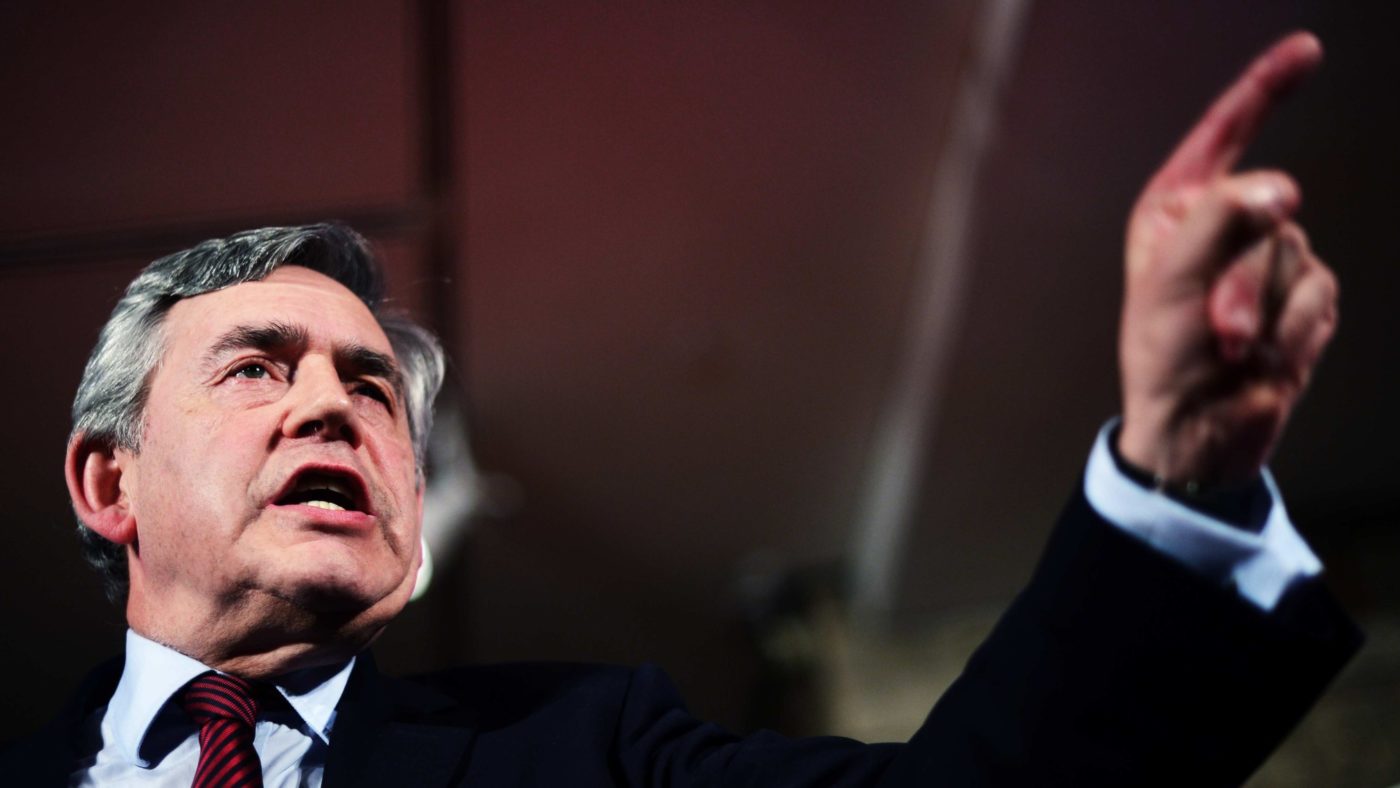In his new book, Gordon Brown tells us that those bankers who acted fraudulently should be prosecuted and jailed. I agree. Of course, those who commit crimes should be jugged. He goes on to say that those who crashed the world economy in 2008 should be similarly punished. Here I disagree.
There is this fairly basic thing that Mr Brown should be aware of called the rule of law. Whatever you might think of what the law ought to be, someone can only be prosecuted for what was a crime at the time and can then only be sentenced to whatever was thought to be the correct punishment which existed in said law when the deed was done.
It is not possible to have anything even approximating to a free or liberal society without sticking to that basic rule.
Take one of the institutions at the heart of the crash: Northern Rock. Their business model was to extend mortgages, funding them with wholesale borrowings from the inter-bank market. They then piled up those mortgages, sold them as those “granite” bonds and paid back the inter-bank loans. Rinse and repeat. The beginning of their end came when they’d issued mortgages, couldn’t get the next tranche of bonds away but also couldn’t fund those already issued in the wholesale markets. This can be all sorts of things but it isn’t illegal and there’s no form of fractional reserve banking which will make it so. Banks issue loans and then go and fund them; that is simply how the system works.
HBOS issued vast loans and mortgages which went sour. We can call this anything we like except illegal because it simply isn’t so. We can even call a merger – brokered by one G. Brown – with Lloyds before the full horrors were known a very bad idea indeed. It ended with state aid for Lloyds. However bad and damaging a merger, it wasn’t illegal then. And it’s not illegal now.
Take, by contrast, the manipulation of Libor. That was fraudulent activity, as at least one court has found and as at least one person is serving a sentence for.
We are imprisoning those who broke the law. Those who didn’t break the law are not in prison. That is rather how this is all supposed to work.
There’s nothing illegal about getting things wrong. Nor is greed, incompetence, or wasting rather than stealing money. It’s not even a crime to be drunk in charge of a bank.
If we were to start criminalising mistakes, then it is the politicians who should start looking over their shoulders. Making wrecking an economy a crime would be uncomfortable for the corpse of Hugo Chavez, the near one of Robert Mugabe and the body of Nicolas Maduro. Depending upon how we define this offence a certain Mr. Brown might need to call his lawyers. It was Brown, after all, who was still running a budget deficit at the end of Britain’s longest boom of modern times. Keynes himself did suggest, after all, that the time to fix the roof is when the Sun is shining.
If spraying other peoples’ cash around to no good end is to be a crime what do we do with the Two Eds? Miliband and Davey – the former as Energy Secretary from 2008 to 2010, the latter in the same position from 2012 to 2015 – constructed the UK response to climate change. Let’s not argue about whether it’s happening, let us stick with what the policy should be assuming that it is. As Dieter Helm’s latest report tells us: “Much more decarbonisation could have been achieved for less; costs should be lower, and they should be falling further”.
This is not a surprise. It was a central part of the Stern Review – the very report which the Eds used to justify their actions. Do not attempt a piecemeal set of regulations for if you do it will cost more, less decarbonisation will happen, than if you use the correct policy. Either a system of cap and trade or a general carbon tax. For the one intervention (either of them) corrects the price system to encompass the externality and we then get the entire market reorganising itself to account for it.
What did they do instead? Exactly what their own source document told them not to do, impose a system of overlapping administrative measures, many working against each other (biofuels in power stations? Actually higher CO2 emissions than even coal?) which cost us all a fortune.
In other words, they wasted other peoples’ money. Why not make that a crime?
Given the existence of politicians we’re simply not going to be able to make incompetence, nor the wasting of our money – even the crashing of economies – a crime.
Instead, we’ll have to limit ourselves to jailing those who acted fraudulently – as we have done to both politicians and bankers – and leave those who merely get things wrong to the mercies of future employers or, in Gordon Brown’s case, the electorate.


